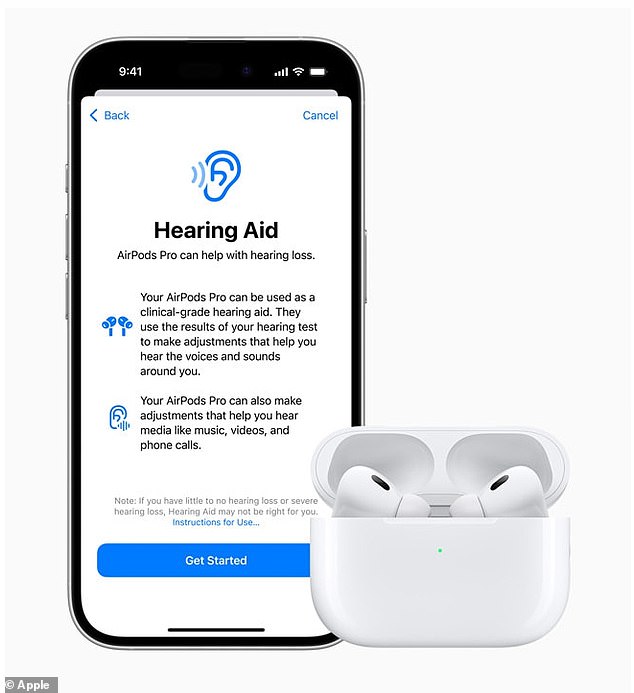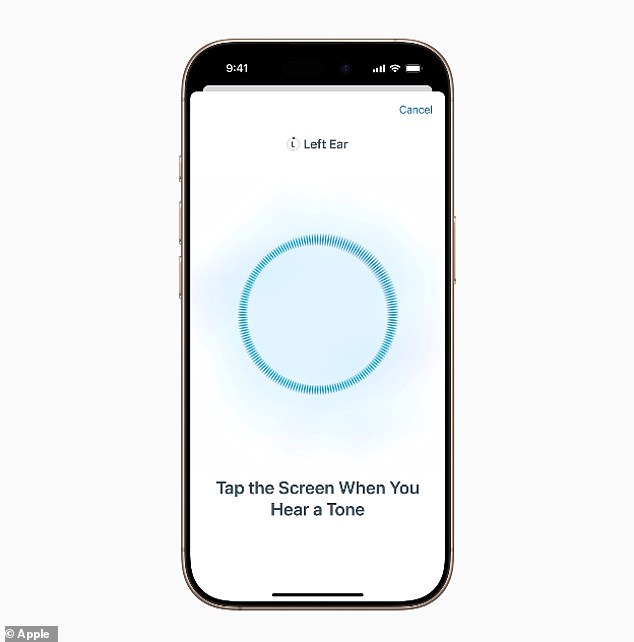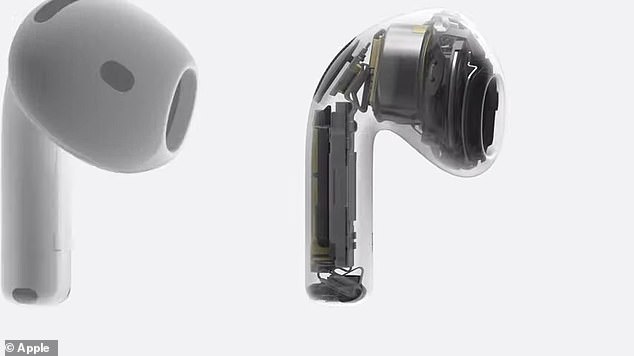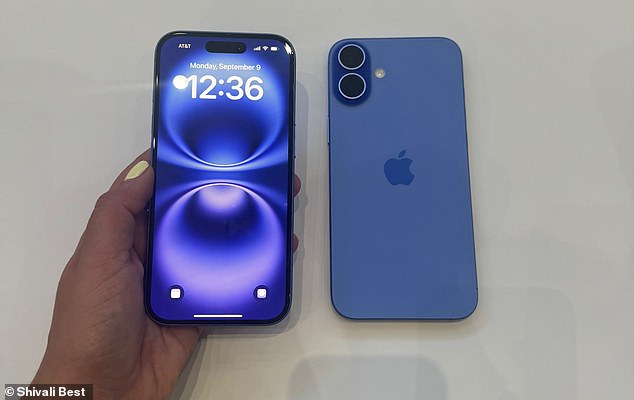Apple Earphones Become Hearing Aids With New Software Update – Here’s How It Works
Apple unveiled its new iPhone last night with the usual fanfare, along with a handy little feature for its earbuds that are already on the market.
A software update for the company’s £229 AirPods Pro 2, which first hit the market in 2022, will allow wearers to use them as clinical-grade hearing aids.
The feature amplifies specific sounds in real time without delay, such as another person’s speech or environmental sounds such as traffic.
Apple hopes this will shake up the hearing aid market, which normally costs £400 or more.
It will be available as part of iOS 18, Apple’s new software update coming later this month.
The hearing aid feature will be available later this month as part of iOS 18, Apple’s new operating system
According to Apple, one in three people are regularly exposed to loud environmental noise that can affect their hearing, while three-quarters of people with hearing loss remain untreated.
The tech giant hopes the new hearing feature for AirPods Pro 2 will raise awareness of hearing loss and help prevent it.
“Hearing health is essential to our overall well-being, but is often overlooked,” said Sumbul Desai, Apple’s vice president of Health.
“We’re proud to deliver breakthrough software features with AirPods Pro that put users’ hearing health at the center, providing new ways to test for and get help with hearing loss.”
The new software update will allow wearers to first take a “scientifically validated” hearing test to determine whether they actually need the hearing aid feature.

‘A clinical-grade hearing aid’: Health update coming to AirPods Pro 2, first released in 2022

First, a hearing test is performed where users tap the screen when they hear different sounds at different volumes and frequencies
In the test, users tap the screen of a paired iPhone while listening to different sounds at different volumes and frequencies through their AirPods.
When a user completes the test, they will see a summary of the results in the Health app on the device.
According to Apple, users will also be able to share the results with their healthcare providers so they can have “more informed conversations” about their hearing.
Using the results of the hearing test, the new feature transforms AirPods Pro into a hearing aid by amplifying ambient sounds in real time.
“This allows users to better participate in conversations and stay connected to the people and world around them,” Apple said in a statement.

Apple says: ‘AirPods Pro add a clinical, over-the-counter hearing aid feature for users with mild to moderate hearing loss’
Music, movies, games and phone calls on the iPhone can also be adjusted without the user having to change any settings.
Hearing aids and hearing tests have not yet been cleared by international health authorities, but Apple says this will happen “soon.”
Apple also announced the AirPods 4, the latest earbuds in the standard AirPods line. These earbuds are cheaper than the existing AirPods Pro line, costing £129.
AirPods 4 feature noise cancellation and “the most advanced audio experience,” but lack the new hearing feature.
Apple also unveiled a new edition of its smartwatch that tells users if they have sleep apnea, a condition in which breathing stops and starts again during sleep.

AirPod Pro 2 will feature noise cancellation technology to provide hearing protection, with the devices also being able to perform a clinical hearing test in just five minutes to check the user’s hearing health

The iPhone 16 and iPhone 16 Plus were the first two smartphones unveiled at the event, with Apple claiming they ‘mark the beginning of a new era for iPhone’
It detects small movements of the wrist associated with disruptions to normal breathing patterns during sleep.
But Apple’s biggest announcement that day was the iPhone 16, which comes with a new camera button and new AI capabilities.
The iPhone 16, which starts at $799/£799, comes in two sizes: 6.1-inch and 6.7-inch for the Plus model.
The phones are powered by new A18 chips, which feature a 16-core neural engine designed for generative AI-linked tasks and Apple Intelligence.
